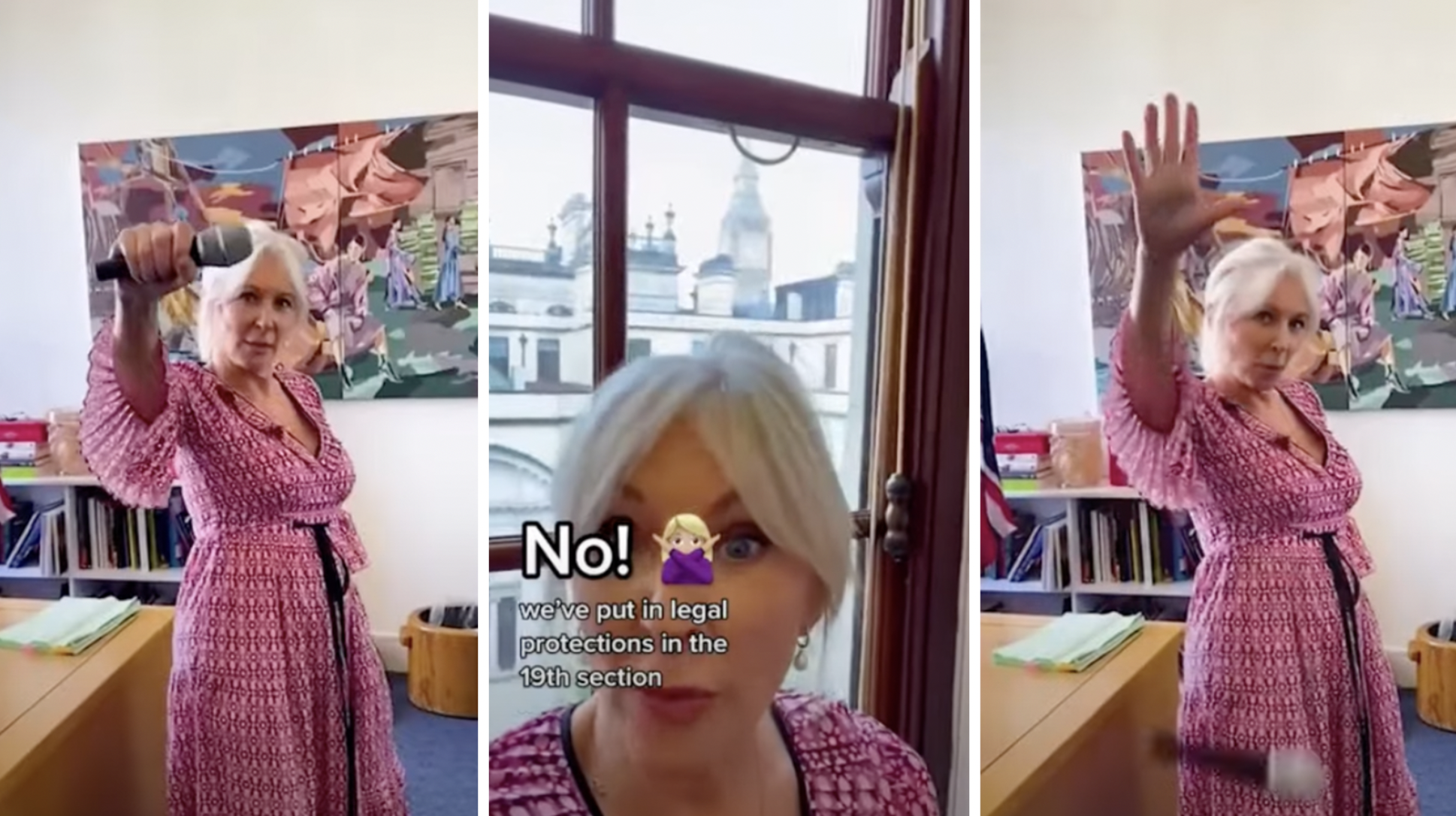The government will keep the draft lyrics to Nadine Dorries’ viral TikTok rap secret, citing the need for a “safe space” for ministers to do their work.
When culture secretary Dorries dropped a 41-second rap explaining her department’s new Online Safety Bill, it went viral – attracting a mass of headlines and jokes.
The Big Issue asked for the draft lyrics of the TikTok – as a way to glean how much time, effort, and government brainpower had been spent coming up with the video.
But after seeking advice from an unnamed minister, the Department for Digital, Culture, Media, and Sport won’t release them, saying it would “prejudice the effective conduct of public affairs.”
In a Freedom of Information response, the department said: “There is a public interest in preserving a ‘safe space’ around ministers and government officials so that they can communicate with confidence.
It added: “If all communications were disclosed, then this lack of safe space could lead to less innovative or creative options being discussed and reduce the potential reach of communications in an evolving landscape.”










